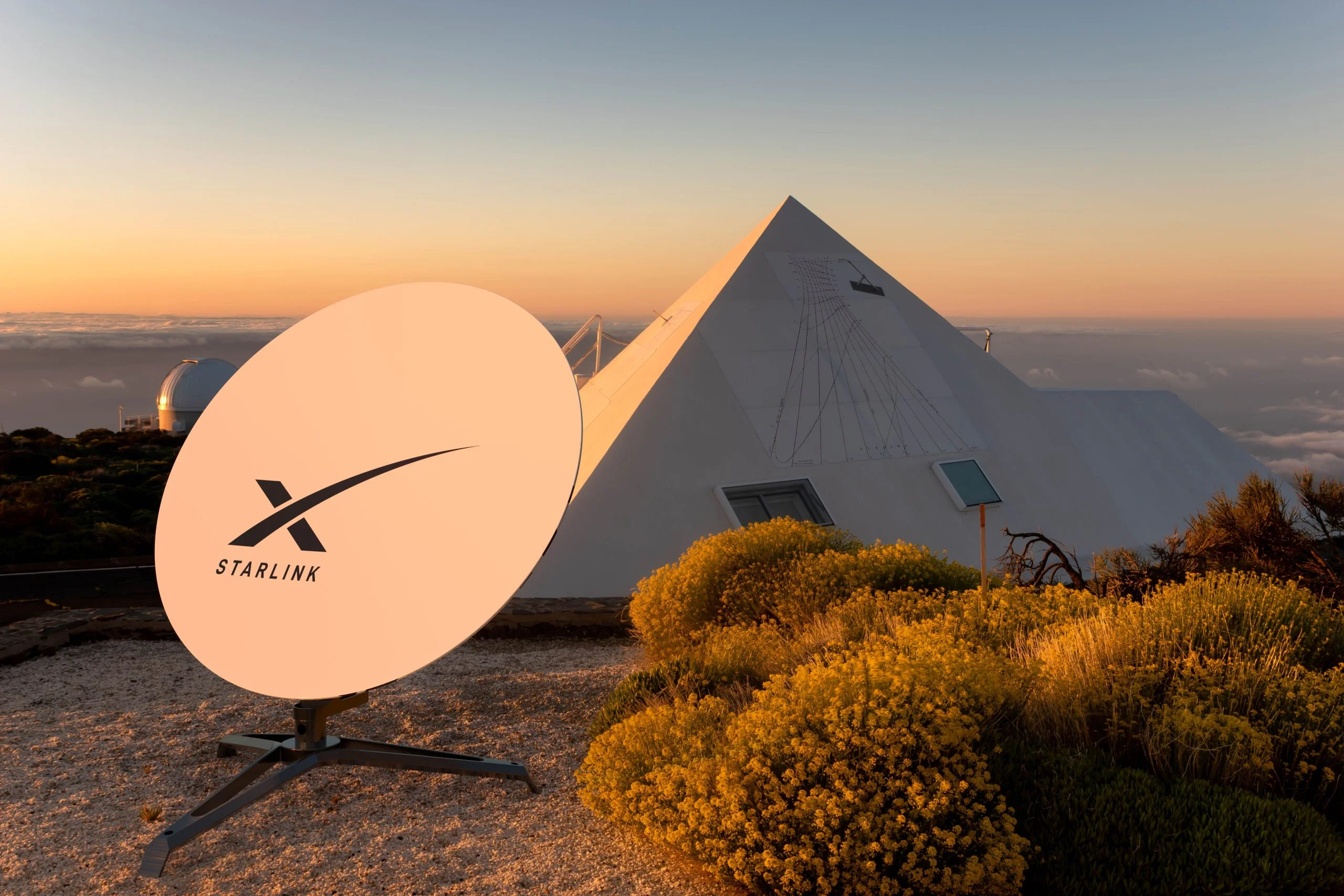Elon Musk’s Starlink is in discussions with the South African government to bring its satellite internet service to the country, marking a significant potential investment in Africa’s largest and most developed economy. The talks, which were confirmed by President Cyril Ramaphosa, revolve around the possibility of Starlink expanding into South Africa, a move that could revolutionize internet access in the nation.
Starlink, a subsidiary of SpaceX, provides high-speed satellite internet to underserved areas across the globe, and its expansion into South Africa would mark another step forward in Musk’s mission to provide global internet coverage. Currently, Starlink is operational in several neighboring countries, including Zambia, Eswatini, Malawi, and Zimbabwe, with South Africa being a major prospective market due to its large population and economic status.
Elon Musk, the world’s richest person and founder of Starlink, was born in Pretoria, South Africa, and while his companies have expanded globally, he has yet to bring significant investments to his home country. This fact has not gone unnoticed by President Ramaphosa, who mentioned that he personally approached Musk about Starlink’s expansion into South Africa.
“I have had discussions with him and have said, ‘Elon, you’ve become so successful and you’re investing in a variety of countries. I want you to come home and invest here,’” Ramaphosa told reporters in Pretoria. According to the president, Musk responded positively to the idea and agreed to further discussions.
Ramaphosa also disclosed that Starlink approached the South African government with the intention of introducing its satellite internet service to the country. This move aligns with South Africa’s push to enhance digital infrastructure, a crucial component of economic growth in the modern age.
Despite the promising discussions, Starlink faces significant regulatory challenges in South Africa. Like many other companies that wish to operate in the country, Starlink must comply with South Africa’s Broad-Based Black Economic Empowerment (BEE) regulations, which require businesses to have a certain percentage of Black ownership to address inequalities left over from the apartheid era. These regulations are designed to promote economic inclusion and uplift historically disadvantaged groups.
However, companies can negotiate alternative arrangements with the government to meet these requirements, which could be key for Starlink’s entry into the South African market. President Ramaphosa hinted at these discussions, though details of any specific proposals or compromises have yet to be made public.
Elon Musk has acknowledged these regulatory hurdles, stating in response to a post on his social media platform X (formerly known as Twitter) that Starlink is “waiting for regulatory approval” in South Africa. While no official comment has been made by Starlink, it is clear that the company is eager to expand its satellite internet service into the country, pending the resolution of these charges.
If Starlink successfully enters the South African market, it could drastically improve internet access, particularly in rural and underserved areas. South Africa’s digital divide remains a significant issue, with millions of citizens lacking reliable internet access, which is essential for economic opportunities, education, and healthcare in today’s interconnected world.
Starlink’s satellite internet service offers a potential solution by providing high-speed internet to regions that are difficult or costly to reach with traditional broadband infrastructure. Its entry into the South African market could help bridge the gap in connectivity and support the country’s broader goals of digital transformation and economic growth.
Additionally, Starlink’s presence would increase competition within South Africa’s telecommunications sector, potentially driving down internet prices and improving service quality. This could benefit not only consumers but also businesses, which rely heavily on fast, reliable internet for day-to-day operations.
Starlink’s talks with the South African government come as the company continues its steady expansion across the African continent. Countries like Zambia, Eswatini, Malawi, and Zimbabwe have already welcomed Starlink’s satellite internet service, with Zimbabwe being the latest to gain access. This expansion underscores Musk’s commitment to bringing his technology to areas that have historically been underserved by traditional telecommunications providers.
For South Africa, securing Starlink’s presence would be a significant milestone in the country’s efforts to modernize its telecommunications infrastructure and compete on a global stage. With the promise of high-speed internet access in even the most remote areas, Starlink could play a crucial role in shaping South Africa’s digital future.
As discussions between Starlink and the South African government progress, many are eager to see whether Musk’s satellite internet service will finally make its way to the country of his birth. For now, the nation waits to see how negotiations unfold and whether Starlink can clear the regulatory hurdles that stand in its way.
